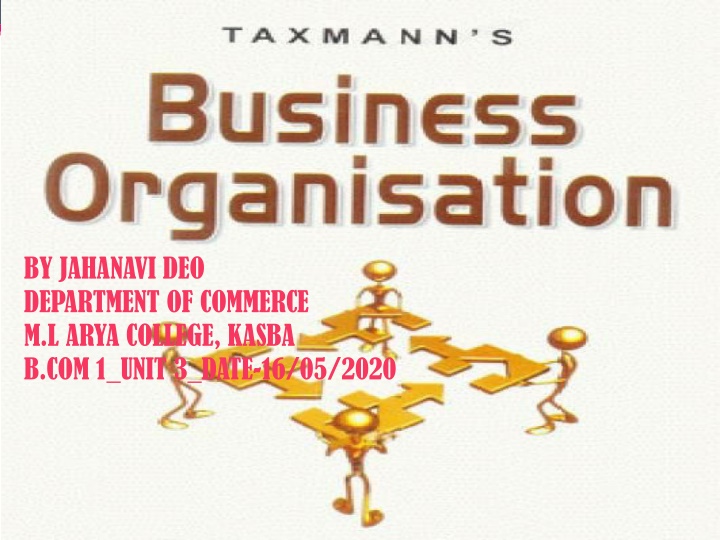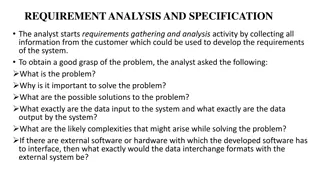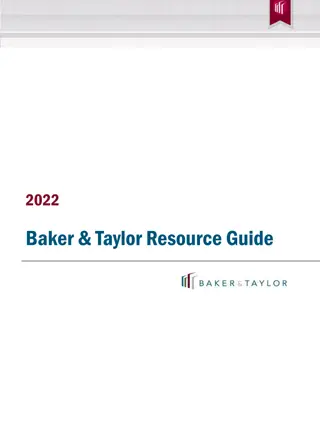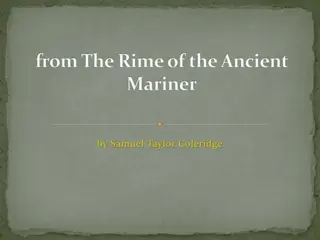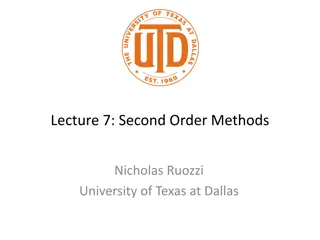The Concept of Functional Organisation by F.W. Taylor
F.W. Taylor, known as the father of scientific management, developed the concept of Functional Organisation based on principles of specialization. His approach emphasizes organizational balance through various functions, including Functional Foremanship with eight specialist foremen. Each foreman plays a specific role in directing workers and maintaining discipline in the organization.
Download Presentation

Please find below an Image/Link to download the presentation.
The content on the website is provided AS IS for your information and personal use only. It may not be sold, licensed, or shared on other websites without obtaining consent from the author.If you encounter any issues during the download, it is possible that the publisher has removed the file from their server.
You are allowed to download the files provided on this website for personal or commercial use, subject to the condition that they are used lawfully. All files are the property of their respective owners.
The content on the website is provided AS IS for your information and personal use only. It may not be sold, licensed, or shared on other websites without obtaining consent from the author.
E N D
Presentation Transcript
BY JAHANAVI DEO DEPARTMENT OF COMMERCE M.L ARYA COLLEGE, KASBA B.COM 1_UNIT 3_DATE-16/05/2020
F.W. Taylor, who is better known as the father of scientific management developed the concept of Functional Organisation . As the very name suggests, functional organisation implies that the organisation should be based on various functions. Taylor s functional approach is mainly based on principle of specialization and tries to bring about organisational balance.
Taylors concept of Functional Foremanship (as he puts it), is a system comprising of eight different foremen discharging different functions. Every worker in the organisation is directly connected with these foremen. The eight specialist foremen are: (a) Route Clerk, (b) Instructions Card Clerk, (c) Time and Cost Clerk, (d) Shop Disciplinarian, (e) Gang Boss, (f) Speed Boss, (g) Repair Boss, and (h) Inspector. The first four bosses operate from Planning Department, whereas the other four are known as Executive Functional Bosses. They function in the production department.
(a) Route clerk: He lays down the exact path or route to be followed by raw material transforming it into finished product. (b) Instruction card clerk: He prepares detailed instructions to be followed in doing the work as per the route laid down by the route clerk.
(c) Time and cost clerk: He determines the total time to be taken in the completion of a product and also works out the cost of production per unit and total cost. He prepares various work schedules and cost sheets in order to have proper control over time and cost incurred in producing goods. (D) Shop disciplinarian: He is responsible for maintaining proper discipline in the organisation. In fact, he is the guardian of orderliness in the factory. In the words of Kimball and Kimball Jr. The shop disciplinarian is responsible for discipline and good order, fie is also the peacemaker and assists in adjusting wages. He is helpful in resolving minor disputes regarding wages, holidays, working conditions and hours of work etc. He initiates a proper code of conduct in the organisation.
(e) Gang boss: He makes the availability of different machines and tools required by workers to carry out their work. He also provides various production designs, drawings, raw materials etc. (f) Speed boss: He controls the speed of different machines operating in the organisation. He sometimes demonstrates the workers the proper speed with which the machines should operate. He undertakes proper supervision over speed of machines.
(g) Repair boss: He is concerned with proper maintenance and repairs of machines for keeping them in working order. In the words of Spriegel, His job of maintenance includes cleaning the machine, keeping it free from rust and scratches, oiling it properly and preserving the standards which have been set up for the auxiliary equipment connected with the machine such as belts, counter shafts and clutches. His main task is to undertake immediate repair of the defective machines so that the work may not suffer. (h )Inspector: He checks and certifies the quality of work i.e., whether or not it is up to pre-determined standards. Achievement of pre-set standards is confirmed by the inspector. He develops the feeling of quality consciousness among the workers. In order to carry out his job effectively, an inspector must possess proper knowledge and the technicalities involved in quality control.
